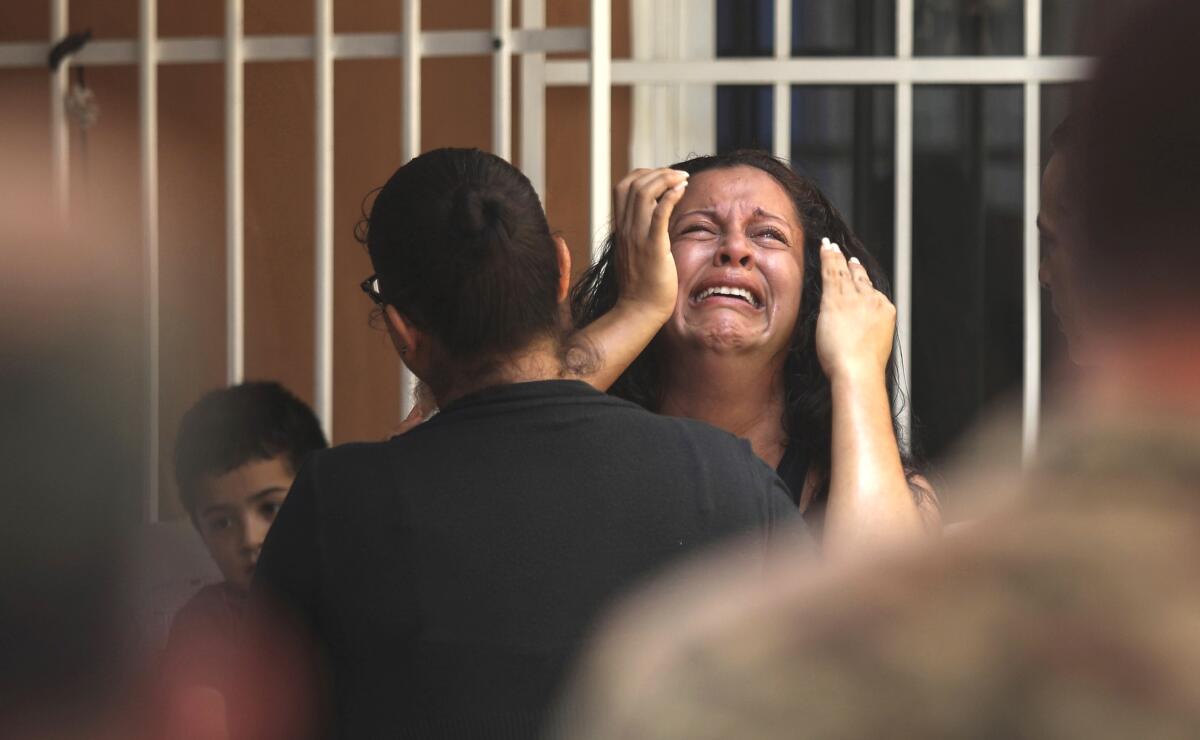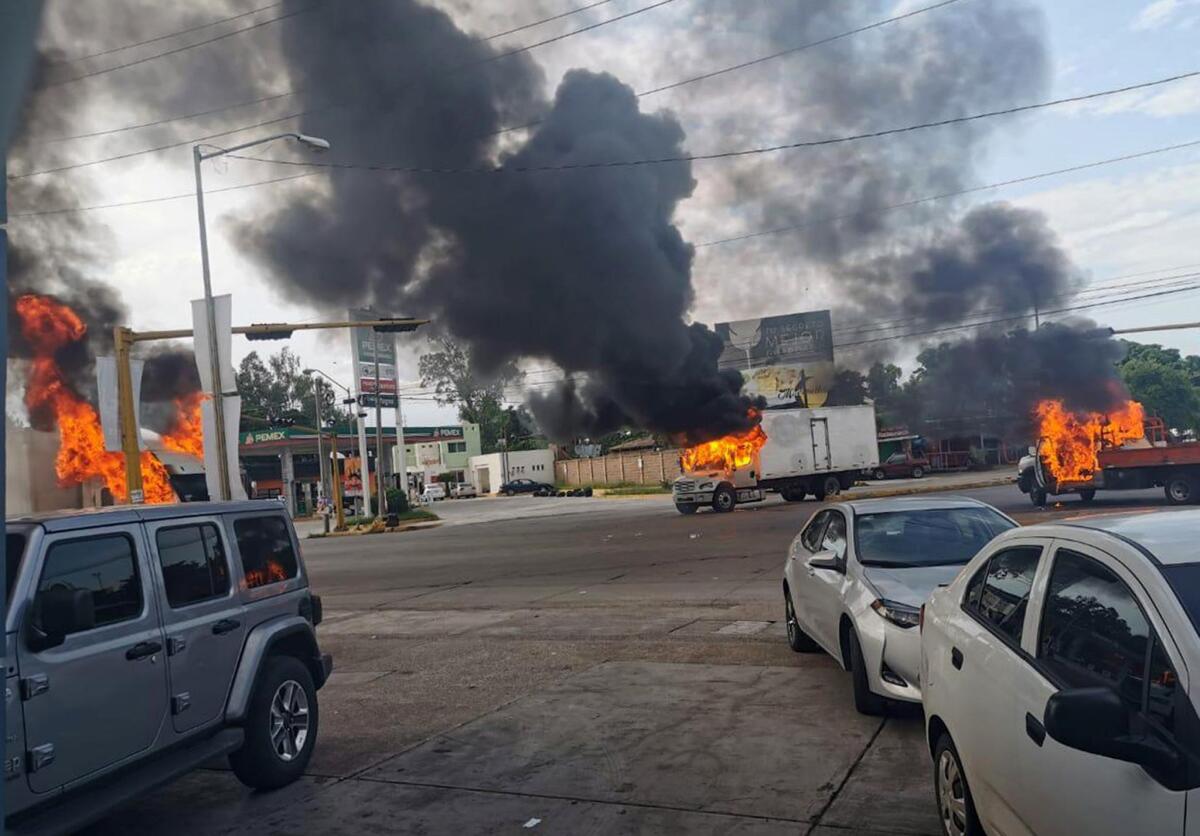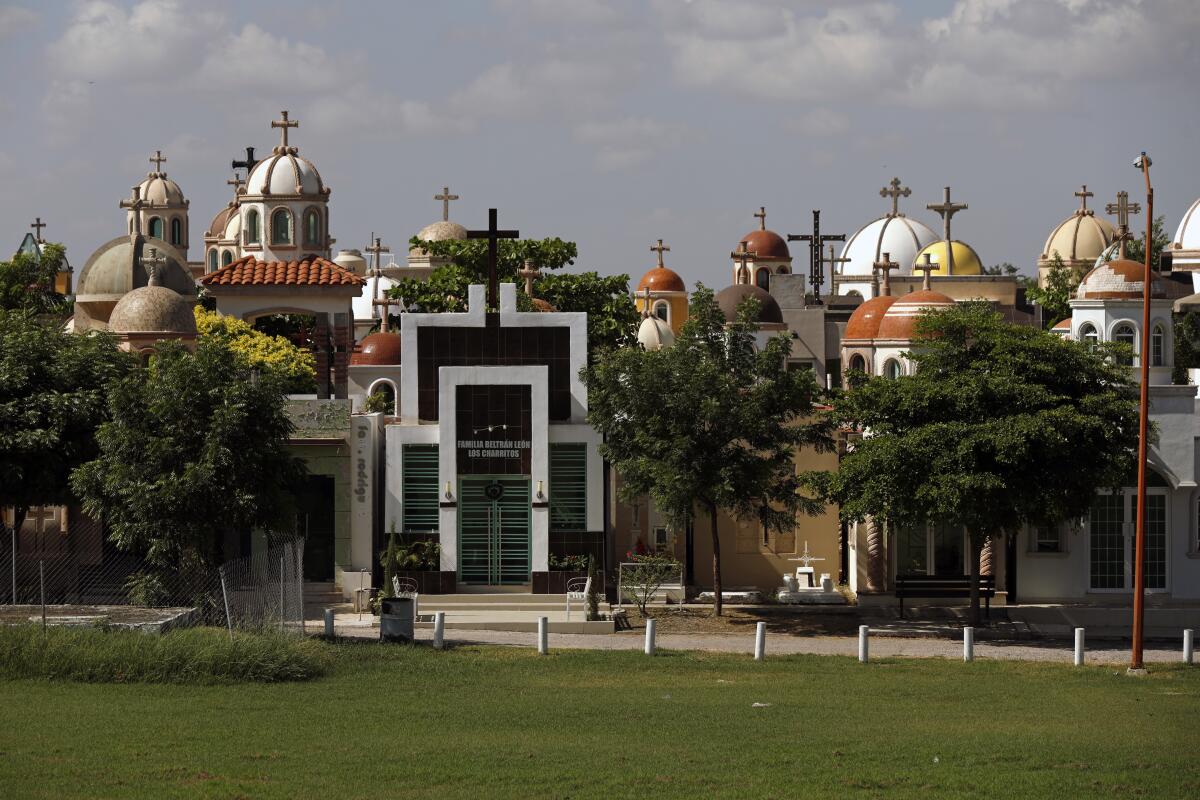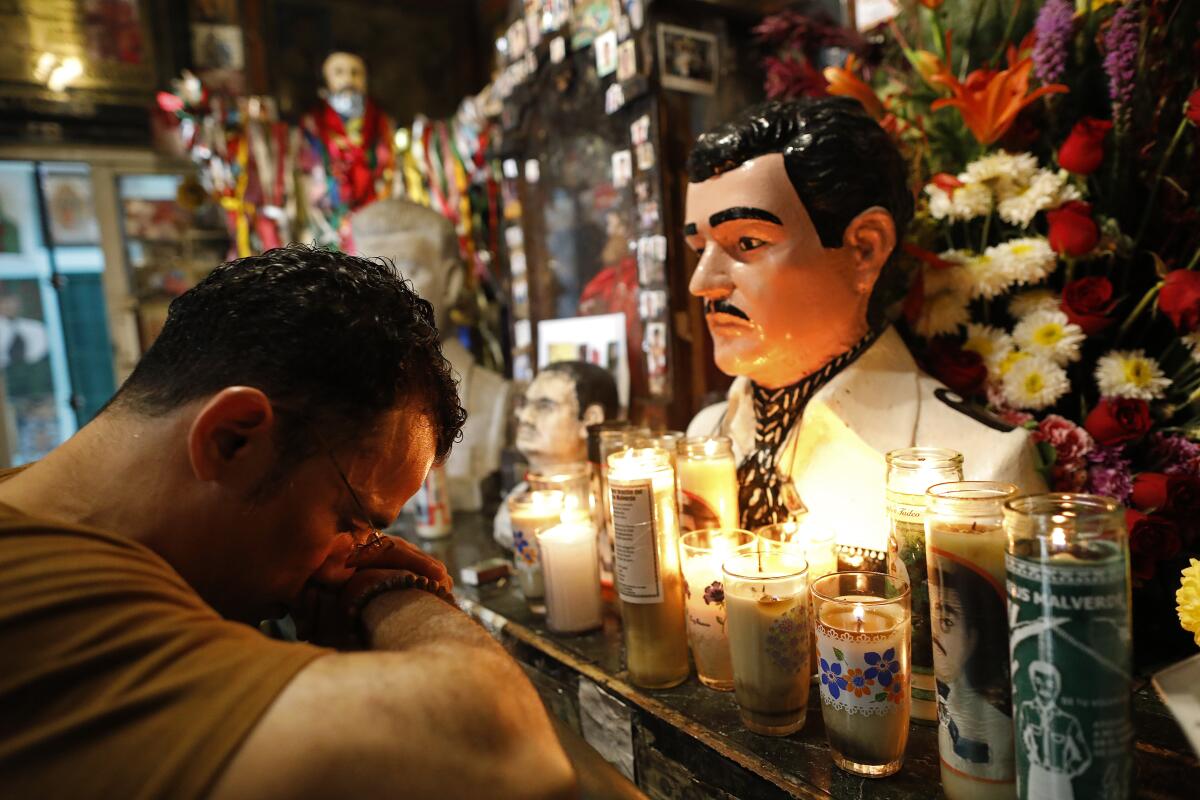There was an unspoken pact between narcos and civilians. It broke when ‘El Chapo’s’ son was captured

CULIACAN, Mexico — Culiacan has long been a city of open secrets.
Elaborate shrines to fallen drug traffickers dot the streets, and bouncy ballads chronicling the lives of gangsters boom from restaurants, bars and luxury cars.
Behind City Hall, black-market money changers make a living turning dollars into pesos, while at a nearby cemetery, sprawling narco tombs boast marble floors, air conditioning and satellite television.
For decades, drug trafficking has dominated the economy, culture and sometimes the politics of this city of nearly a million people tucked between the Sierra Madre and the Pacific.
And it used to be mostly at peace, thanks to an unspoken pact between residents and the Sinaloa cartel, the group that controls trafficking in the region:
Civilians looked the other way -- as long as the narcos kept their fights off the streets.
That social contract shattered one afternoon two weeks ago when in the span of minutes hundreds of cartel fighters appeared in the middle of the city wielding high-powered weapons.

The assailants were responding to an army operation to capture Ovidio Guzman Lopez, a leader of the Sinaloa cartel and the son of famed drug boss Joaquin “El Chapo” Guzman.
To pressure the army to release its leader, the cartel took hostage the city it had always claimed to protect.
“It was a rupture,” said Isaac Guevara Martinez, a social psychologist who studies violence at the Autonomous University of Sinaloa. “This had never happened before. And now nobody knows what to think.”
In other parts of Mexico, criminal groups often prey on residents. In Tamaulipas, Guerrero and Michoacan, cartels routinely kidnap civilians and levy hefty “protection” payments on businesses.
But the Sinaloa cartel had always behaved in a different manner. Though cartel members appear to have no qualms about breaking laws — or killing anybody who gets in their way — the group’s founders fostered an almost paternal relationship with locals.
In Badiraguato, a mountainous municipality east of Culiacan where “El Chapo” and many of the country’s most powerful drug traffickers got their start growing marijuana and poppies in the 1970s, the narcos built churches and roads and brought electricity to poor villages that the government had largely forgotten.
It was when those farmers started forging links with cocaine producers in South America in the 1980s that real money started flooding into the region. Residents didn’t have to be in the drug business to profit from it. Cash flowed through local economies, and as traffickers moved into Culiacan and other cities, they hired armies of young lookouts continued to cultivate reputations as benevolent benefactors.


“There is a lot sympathy for them,” said Guevara, noting the widespread popularity of narcocorridos. “It’s something we have in our blood.”
But it is one thing to listen to a song about a cartel gunslinger battling authorities, and another to live it.
“I always sensed they were here,” said a woman named Gloria who declined to give her last name out of fear. “But it was so different to see it.”
She was working as usual Oct. 17 at a small market across the street from a military housing complex when she heard a loud explosion followed by three or four minutes of automatic gunfire. Cartel fighters had surrounded the complex and were threatening to harm families unless authorities freed Guzman.
She hit the ground and frantically began texting family members, several of whom were trapped by shootouts in other parts of the city.
By the time the siege was over, 13 people were dead, including three civilians, and Guzman was free again.
“It was good that they liberated him,” Gloria said of Guzman. “It was the best they could have done.”
Her opinion was widely shared here in Culiacan.
“Imagine what would have happened,” said Adriana Rojo, a gas station worker who spent the siege huddled with nine people inside a men’s bathroom as soldiers and cartel members exchanged gunfire a few blocks away.
If the standoff had continued, she said, “it would have been even worse.”
In other parts of Mexico, many are furious about the bungled operation, which they say sends a dangerous message to criminal groups. Here the public outcry has been limited to a few public figures who have urged the government to redouble its efforts to capture Guzman or other leaders of the cartel.
Most residents seem wary of more conflict and eager for things to return to the way they were. Last Sunday, hundreds donned white and held a march calling for peace.
If peace means a city ruled by drug traffickers, so be it.
Around town, speakers blast the dozens of narcorridos that have already been written about the events of Oct. 17. One is titled “The Rescue of Ovidio Guzman.” Another is called “Hell in Culiacan.”
“In a few minutes, the streets were like a video game, with hooded, well-armed men ready to fight,” goes another song dedicated to Guzman.
Diners have returned to restaurants that were sprayed with bullets during the conflict, and the burned-out vehicles that the narcos used to block intersections are gone.
On a recent hot morning, a construction worker was plastering over the dozens of bullet holes that scarred the walls of the modern home where Guzman was briefly captured. The home was back in cartel hands now, and with a little paint, it would look like nothing had happened.
Special correspondent Steve Fisher in Culiacan contributed to this report.
More to Read
Sign up for Essential California
The most important California stories and recommendations in your inbox every morning.
You may occasionally receive promotional content from the Los Angeles Times.











